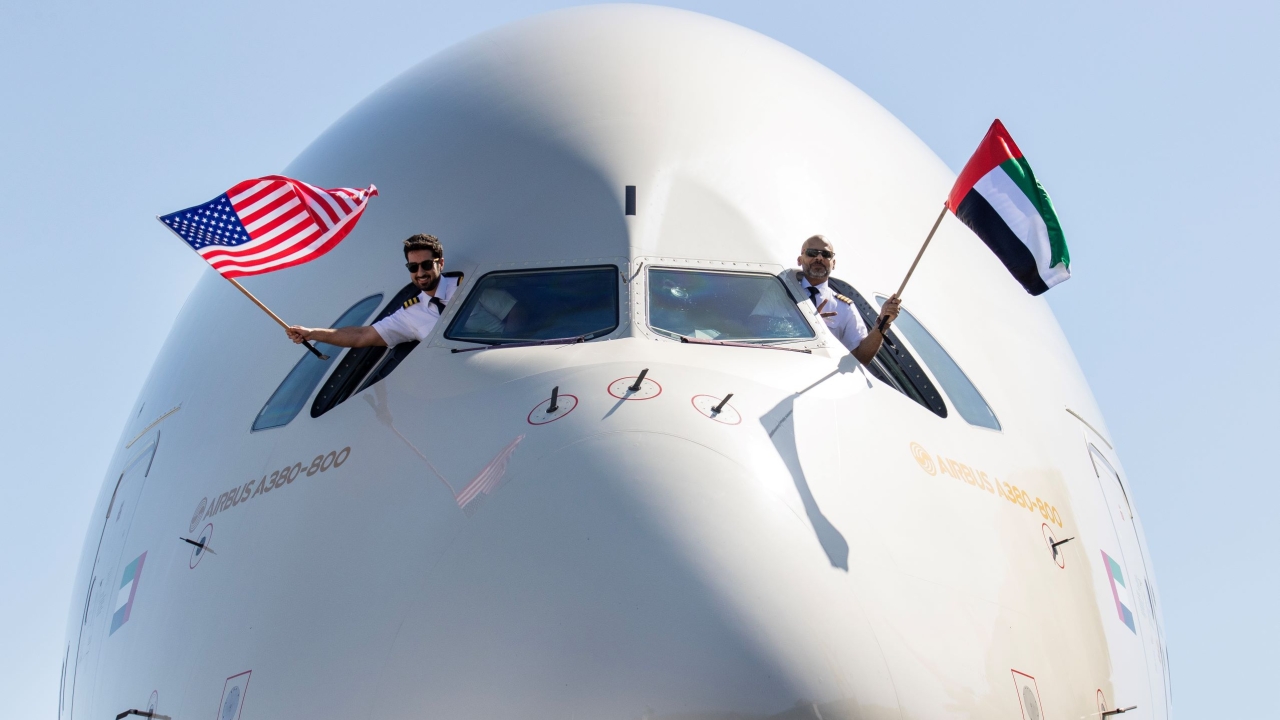JATE battles to stay on target
As a country, Jordan has never had it easy. Sandwiched between larger or more powerful nations in a highly unstable region, with few natural resources, it has had to rely on the ingenuity and skills of its people to survive. Alan Dron highlights one excellent aviation example.

Over the years, Jordan’s airlines have to fight off both the strength of the huge Gulf carriers and the rapidly growing low-cost carriers that are making their presence increasingly felt in the region.
For an airline, therefore, to have made a profit in every year bar one since its formation, is no mean feat.
Jordan Aviation (JATE) was founded in 1998 as a privately owned airline headquartered in Amman, by Captain Mohammed Al-Khashman. The company obtained its air operator’s certificate (AOC) in October 2000 and began operations the following month.
Still privately owned today, it is run by co-owner, Captain Al Khashman’s son, Captain Zuhair Al Khashman.
The airline runs a combination of scheduled flights, charters and leasing of its aircraft to other carriers. A significant part of its work over the years has been flying United Nations peacekeeping troops to trouble spots around the world, a service for which the company has received several UN awards.
It also has the necessary approvals to act as a cargo carrier, but this is not a field in which it operates at present.
It has a maintenance operation – JAV Technic – based at Amman’s Queen Alia International Airport that is approved by 17 countries, handles maintenance for carriers throughout the region, and has European Aviation Safety Agency (EASA) certification.
JAV Technic aims to increase its aircraft repair approvals by introducing new capabilities in handling Airbus and Boeing single-aisle types, as well as those from Embraer.
The company, which specialises in airframe repair, along with services for wheels and brakes and certain composites service, currently covers the Airbus A320, A330, Boeing 737 and 767.
The aim is to have expanded from these types by early 2019 to include A320s operating with both IAE V2500 and CFM56-5B engines, along with Boeing 737NG and Embraer aircraft.
JATE survives partly because it has a completely different route network and mode of operation from that of Royal Jordanian.
“Our business model is different,” said Zuhair Al Khashman. “We work in a different way. We are a traditional airline with a low-cost concept. We offer all the services [of a legacy airline] such as baggage and catering, but at a lower price than legacy carriers.”
The company faces both opportunities and challenges in the near term, said Khashman. A major opportunity is likely to arise when neighbouring Syria starts to open up again as the government nears the end-game in the long-running civil war.
Challenges come in the form of subsidies for rival carriers, he said. These go to both national carriers and other legacy airlines where governments seek to keep state-owned companies afloat. “While we, as a private sector company, don’t get any.”
Rising fuel prices are another hurdle to be faced, but these have affected JATE less than some companies: “They didn’t have an impact on our operation that much.”
The fleet today consists of a mix of Airbus and Boeing types – two Airbus A320s, plus a single A330-200 from the European manufacturer, accompanied by five Boeing 737 Classics (three -300s, one -400 and a -500), plus two 767-200s and a single 777-300.
Between 2001 and 2003, Jordan Aviation concentrated its activities on charter contracts with UN peacekeeping troops and now it is their favoured vendor. The UN acknowledged JATEs efforts by granting it several awards and recognition letters.
During 2005-2007 JATE operated programmed charter flights from King Hussein International Airport to destinations in the region.
In 2006, the company started dry-leasing its aircraft to other Arab and foreign airlines, especially during peak periods. The same year it completed the International Air Transport Association (IATA) operational safety audit (IOSA) and a re-audit in 2008, becoming one of the youngest airlines to complete this audit with no findings.
Stay up to date
Subscribe to the free Times Aerospace newsletter and receive the latest content every week. We'll never share your email address.

